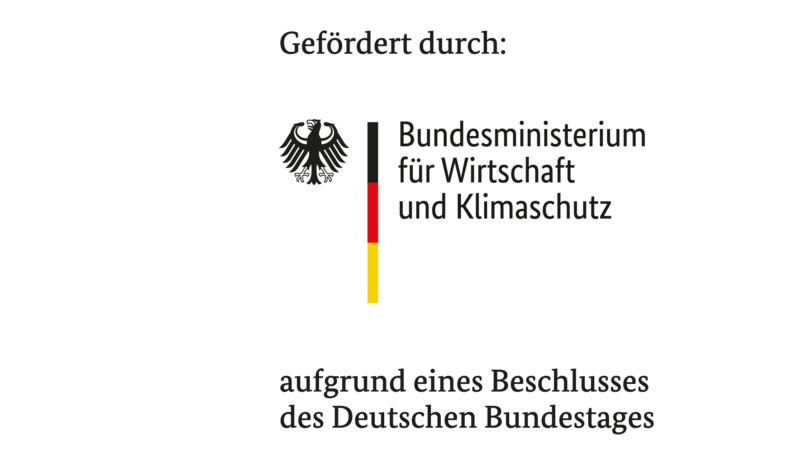JOINT PROJECT FROM THE LIGHTWEIGHT CONSTRUCTION TECHNOLOGY TRANSFER PROGRAMME OF THE FEDERAL MINISTRY OF ECONOMICS AND CLIMATE PROTECTION
Magnesium alloys are already used and accepted for die-cast components in the transport sector. However, there is still a great deal of potential when it comes to formability, particularly because of limitations due to the hexagonal lattice structure. The aim of the project is therefore to qualify a formable nanoparticle-reinforced magnesium alloy with the resulting optimised properties in the cast state for a wide range of applications in the transport sector, both for the automotive industry and for aviation. The extreme grain refinement and the associated increase in ductility, which is achieved after casting, leads the nanocomposite to improved properties in terms of formability and thus generates a clear advantage over other magnesium alloys. In addition to the increase in strength and ductility, it is also necessary for the aviation industry to reduce the flammability of the melt to the level of a corresponding aluminium melt. This is possible with suitable alloying elements or compounds of these elements.
Leuphana University of Lüneburg is working on the joint project "Optimised formability of magnesium nanocomposites" with a focus on forming technology. The forming processes must be adapted to the new material and its new forming behaviour. This requires the derivation of the process-microstructure relationship in order to determine the optimised forming parameters and adjust the component properties in a targeted manner. With the help of the results from the experimental and numerical investigations, the processing steps along the process chain can be designed in a climate- and resource-friendly manner. The investigation of the forming technology relationships forms the basis for the industrial processing of the novel magnesium nanocomposite and enables the realisation of the project at high TRLs.

